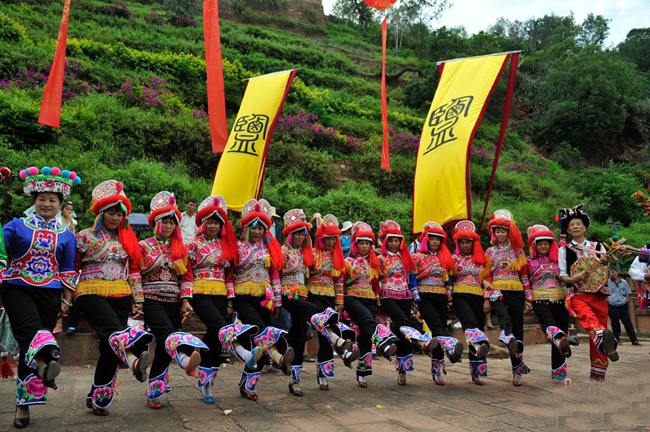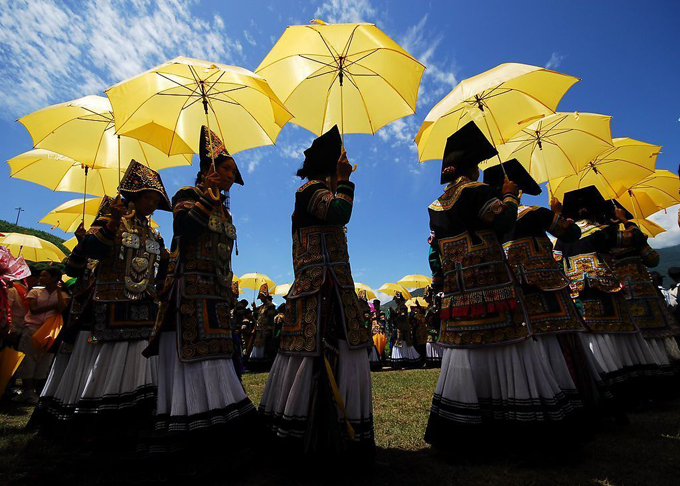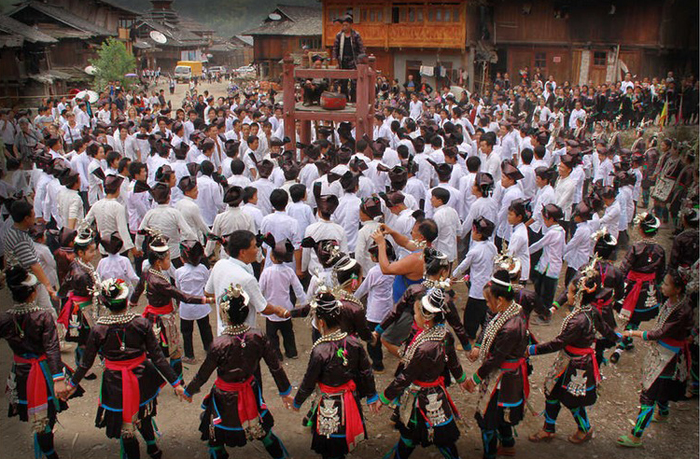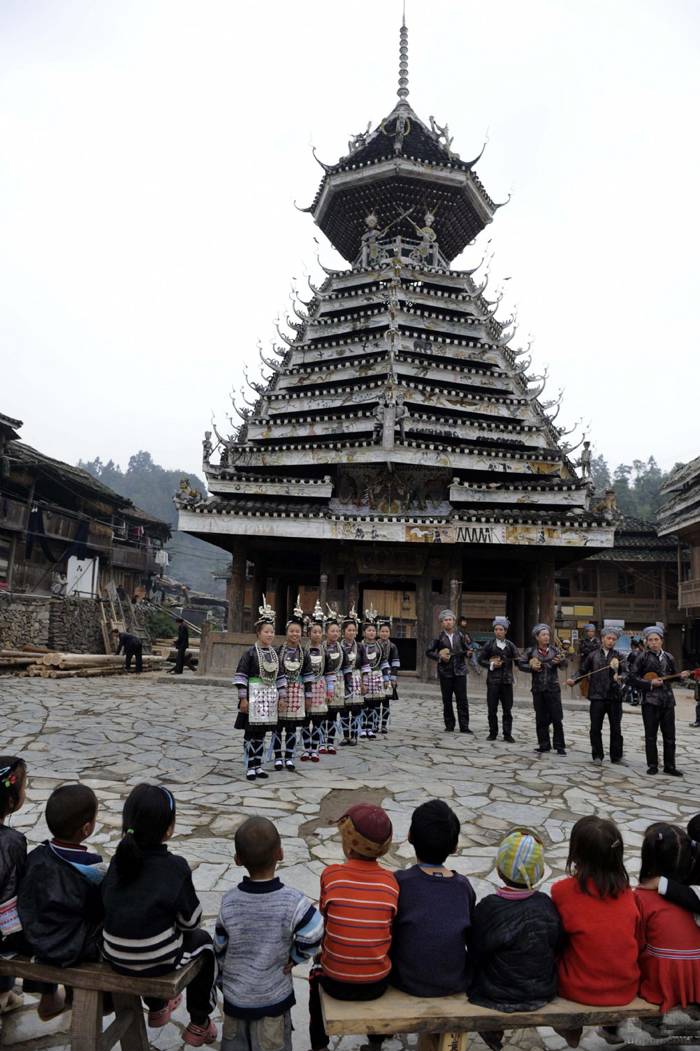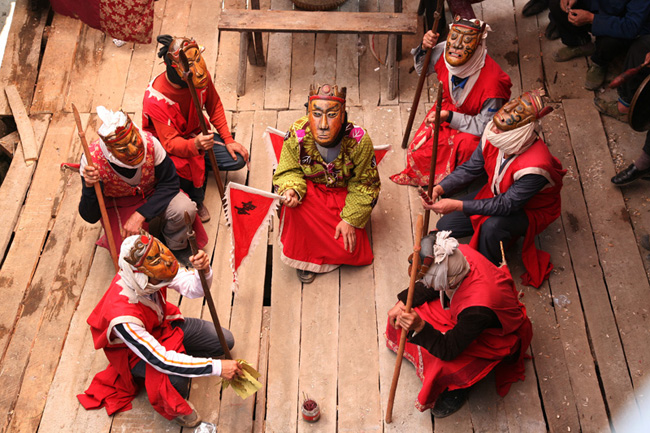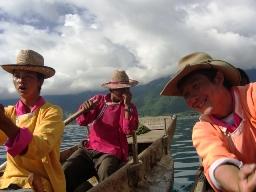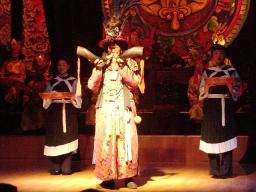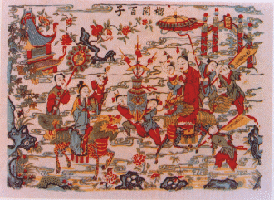Tibetan Nationality
2015-09-04 01:08:37 Author:culture Source:National culture Browse number:0 Comment 0 A
Costumes of Tibetan Nationality
Tibetan people from different places in China have different costumes. But in general, Tibetan garments are with long sleeves, wide waists and front parts which buttons on the right. Because of Tibet's cold weather, both men and women will wear long thick dresses (chuba)in winter, but men also wear a shorter version with pants underneath. Nomads often wear thick sheepskin versions.Tibetan women wear robe with long sleeves in winter but sleeveless ones in summer, and usually with an apron in colorful figures around the waist.The women plait their hair into two queues, the girls into a single queue.
Funeral Arrangements of Tibetan People
After the death of a Tibetan, there are five ways to arrange the body. The most ceremonious one is pagoda burial, but only for Dalai Lama. Other Living Buddha and some suzerains in the past will be buried by cremation. Small children or people die of illness, their bodies will be thrown into the river, and hence, this way of burying is named water burial. Maybe this is also the reason that why many Tibetan people don’t eat fish. Some bad guys will be buried in the ground because Tibetan people think a bad person buried in this way can not get a reincarnation for ever.And the most mysterious one is celestial burial, by which bodies are exposed to birds of prey.However, usually,it's not polite to watch this without permission.
Festivals of Tibetan
There are many holiday activities for Tibetan people, almost one holiday in a month, including folk holidays and religious ones. Among all these meaningful Tibetan festivals, Shoton Festival, Bathing Festival, Ongkor festival and Tibetan New Year are most important and interesting ones.
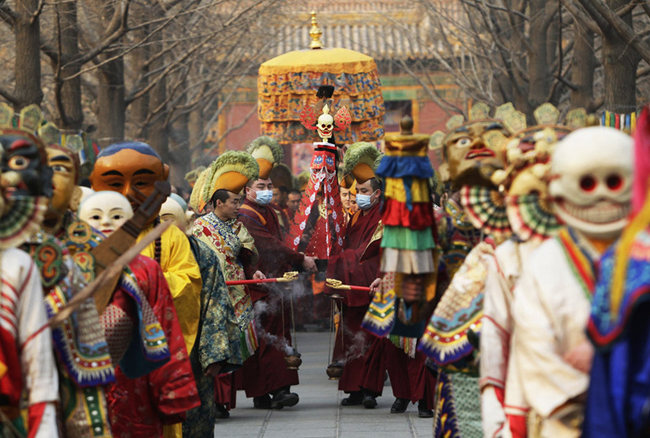 |
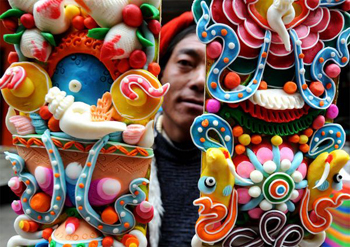 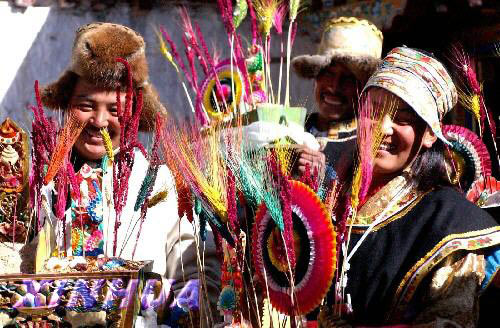 |
World Heritage of Tibetan: Tibetan Opera
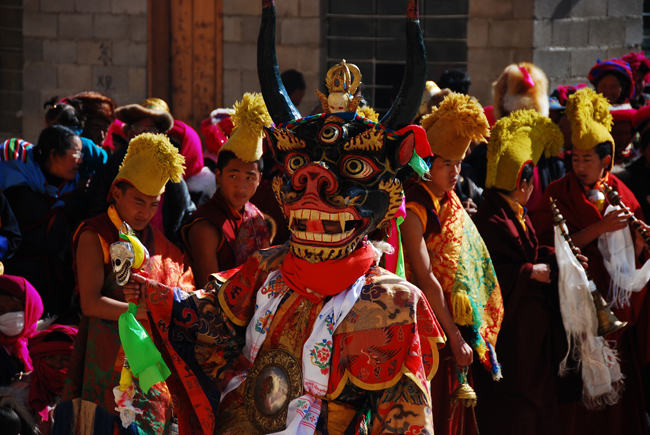 |
| Tibetan Opera: the art of Masks. It is the most popular entertainment of the Tibetans. Because of its significance and value, it has been enlisted into UNESCO Intangible Heritage Site. |
On A: Hani Nationality
Next article: Zoom In Zoom Out Mongolia People: Warriors from Northern Grassland
Already existing0Comment
Review all comments>>
Recommend
Hot Spot
Product


